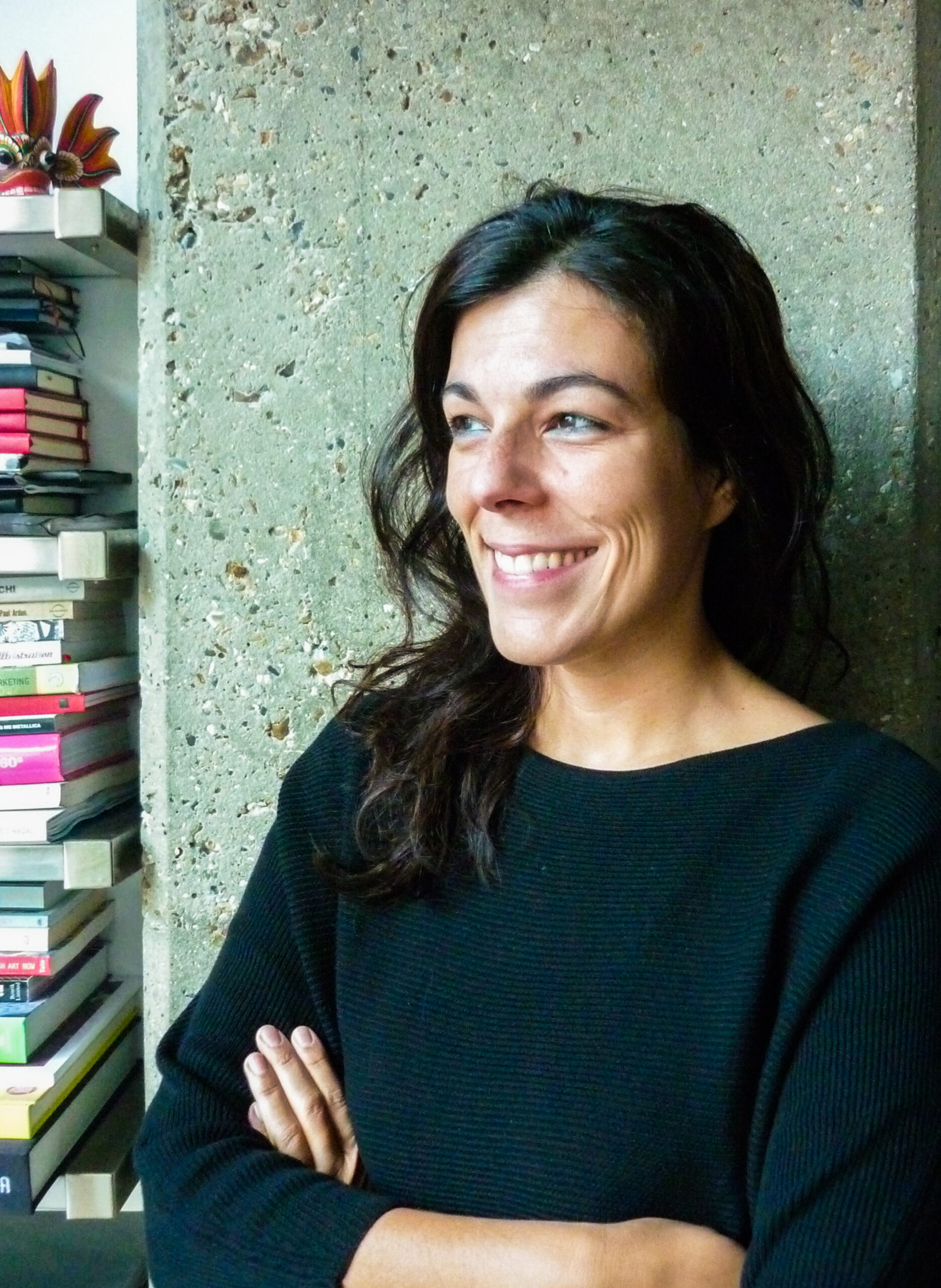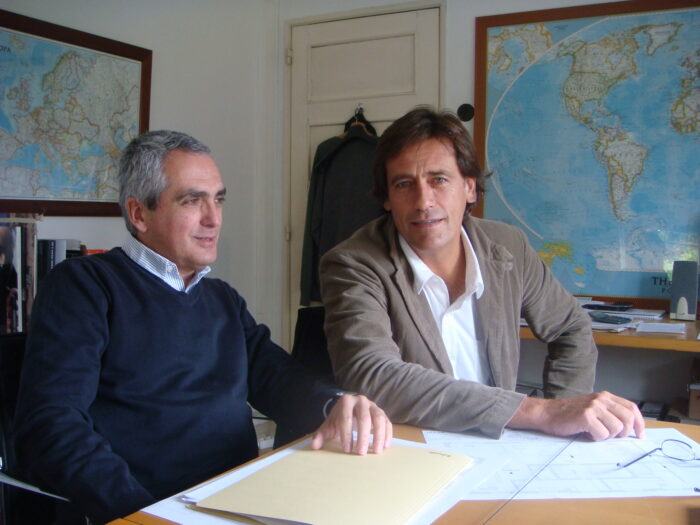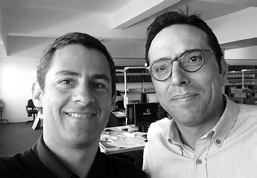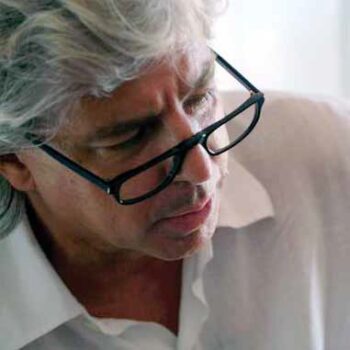A conversation with Arch. Mariana Barbosa Mateus

A conversation with Arch. Mariana Barbosa Mateus
'We are a reference country in contemporary architecture, we export a lot of talented young architects because we are unable to absorb them here. Some ambitions for the architect's profession: I hope it becomes more valued and respected.'
Why did you choose architecture?
My father was a draughtsman when I was a little girl and worked a lot of evenings at home, so I grew up seeing a lot of architectural drawings. I loved the drawing-board’s and T-square ruler’s universe, and I’m sure this ended up influencing my choice. I also remember that contemporary Portuguese architecture became very popular when I was still in high-school. First with Expo 98, and Serralves and Casa da Música in Porto opened in 1999. I entered college at that time and I am sure that the experience of visiting these buildings cemented the choice to be an architect.
You’ve collaborated at Aires Mateus studio and spent several years in London later. Tell us about your journey.
I studied at the Faculty of Architecture of the University of Lisbon, I did an internship with the studio Matos Gameiro and then I worked for 5 years with Architect Manuel Aires Mateus. It was a great experience and enough time to collaborate on projects from beginning to end, so I learned a lot. In 2011 I moved to London where I worked with Sergison Bates and 6a architects, in the latter I became an associate. In 2017, I thought it was an appropriate time to work solo and I returned to Lisbon.
What are the main differences you find, in the way of work, between the United Kingdom and Portugal?
The modus operandi is quite different, it is a cultural issue, which can be seen in any industry, not only in architecture. However, I would say that the offices where I worked had a very open and European view, perhaps they are atypical in the London context. In both offices I worked in, the directors taught in Switzerland and the atmosphere was very international. In scale and organization, I felt no glaring differences. The positive aspects are undoubtedly the enormous pragmatism they have regarding time and organization. The architect’s job is also more valued. The least positive aspects are related to a lack of directness in communication and, since it is a very competitive context, all are safeguarded in the best possible way, which makes work processes more rigid. It is also important to mention that it is common in the architecture and construction industry to resolve any dispute between the parties in court. The burden created for the possibility of being sued, on the one hand, makes technicians responsible, on the other hand, it can be a constraint in the creative process.
Can you describe your architectural style and what influences do you need?
I believe that each project must be different from the other because it results from the place, its social context, the client, the budget available. All of these constraints create opportunities. For me, at this stage of my career, it would be reductive to have a ‘style’. Having a specific language could narrow down project choices. As for influences, I think it is essential for the practice of architecture to investigate what others have done in the past, from vernacular architecture to a more erudite one.
In what areas have you had the most work lately? What are you developing at the moment?
We have been working mainly on Housing, projects of different scales and in very different locations. We have a project under construction in the historic center of Cascais, a mansion divided into 4 apartments and not far away, in Monte Estoril, another house that is also divided into apartments. In Lisbon, we are developing larger and more compact scales – in Palma de Baixo a residence for students and in Marvila a four-story building with 25 apartments. Outside of Lisbon, we are working on a house in Melides and two tourism projects in Alvor.
Did the pandemic really affect your work?
Fortunately, the volume of work did not decrease but affected the way of working. Since March, we are practically telecommuting. It is possible, but it is not ideal. It is important to work side by side with colleagues and meet personally with customers and the extended project team. Our work is tactile, we have to see samples, make models, draw. We do not have to be present every day or in all circumstances, but there must be points of contact. I think that the future will be like this, even after the pandemic ends, a mix of live and remote work.
And what is the vision for the future?
Some ambitions for the architect’s profession: I hope it becomes more valued and respected. We are a reference country in contemporary architecture, with two Pritzker awards (Álvaro Siza in 1992 and Eduardo Souto Moura 2011), we export a lot of talented young architects because we are unable to absorb them here. However, it is difficult to get fair fees for the architect’s work. The Order of Architects hasn’t played a particularly active role in this and other issues that weaken the profession. Arch. Gonçalo Byrne has been the President of the Order since last summer and has embraced the cause with very assertive premises, I am convinced that he will help the class during his term.
This interview is part of the Artes & Letras Magazine #127, of February 2021
Partially automatic translation from portuguese: some expressions may differ from their actual meaning.
News & Interviews
A conversation with Arch. Carlos Tojal and Arch. Miguel Passos
'Everything we do is discussed. This is fundamentally a team effort where everyone adds' Read more
A conversation with Arch. Tomás Salgado and Arch. Nuno Lourenço
'In most of the projects we do, it is difficult to say, in the end, who was the author. Everyone collaborates' Read more
A conversation with Arch. Paulo David
‘It can be more exciting to build a home for a friend in my village, than to build a tower on 5th Avenue in New York for unknown users’ Read more




